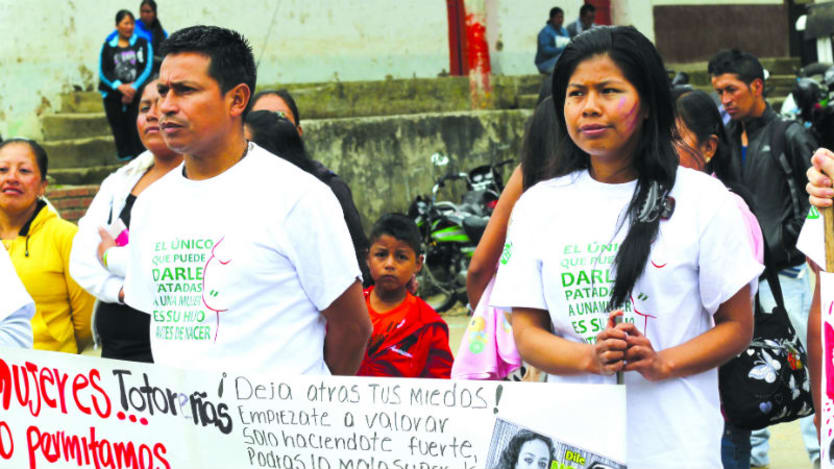Opinion: Why social inclusion in Colombia is more important than ever

On Oct. 2, Colombian voters shocked the world by rejecting peace accords between the national government and the Revolutionary Armed Forces of Colombia, also known as the FARC. The terms of the long-awaited agreement had been finalized in September 2016 after more than four years of negotiation and were to mark a welcomed end to a half-century of conflict. The referendum, however, was unexpectedly voted down by a narrow margin of only 0.43 percent.
It is difficult to pinpoint the exact cause of the referendum’s failure to pass, but some opponents have voiced their disapproval of the social inclusion components of the agreement. The proposed terms, which included a gender focus that specifically recognized the rights of women and lesbian, gay, bisexual and transgender persons, were sharply denounced by the opposition as “gender ideology” that threatened traditional family values and questioned “natural” roles of women and men in society.
Such discriminatory arguments, while certainly not new, may be a re-energized backlash to significant social inclusion progress made in recent history in the legal framework of Colombia.
Public policy regarding the protection and prevention of discrimination and violence against women and LGBT persons has made striking progress since the Colombian Constitution of 1991. Some of the more noteworthy legal advances established by the Constitutional Court include the recognition of same-sex marriages and adoption by same-sex couples, as well as the prohibition of discrimination against LGBT persons, particularly in schools.
Colombian women have also won significant battles to advance their legal rights. Laws now outline comprehensive measures to prevent violence against women, recognize the rights of sexual violence survivors, and establish femicide as an autonomous crime that must be prevented. The country’s Constitutional Court also moved to protect the rights of women involved in the armed conflict and protect women human rights defenders.
And yet, despite these impressive strides made to protect the rights of marginalized populations in Colombia, there remains a disconnect between the policy advances and public mentality. Violence against these populations is still high both in the public and private spheres. According to official figures, women are primarily affected by sexual violence and partner violence in Colombia, with incidences of violence against LGBT persons on the rise.
The numbers: Violence against women and the LGBT community
• In 2015, 40,874 cases of partner violence against women were reported.
• The same year, there were 18,876 cases of sexual violence against women and girls and 970 women were murdered.
• According to Colombia’s National Victims Registry, as of September 2016, 45 percent of 8 million victims of the armed conflict were women, and of those, 3 percent reported being victims of crimes against sexual integrity, while only 1,117 men reported being victims of this type of crime.
• As of Sept. 1, the National Victims Registry reported 1,737 LGBT victims of crimes against sexual integrity.
• In May 2016, the Ombudsman’s Office responded to 89 cases of aggression, a drastic increase from 2015 numbers when 92 cases were reported the entire year.
• A recent report presented by LGBT civil society organizations stated that 110 LGBT persons were murdered in 2015, which is the highest number reported since 2012.
• Also in 2015, 61 cases of police violence against LGBT persons were reported.
The peace accord signed by the FARC and the government of Colombia took an important step to recognize such disproportionate effects of violence on marginalized populations, including LGBT and ethnic communities.
With a chapter on ethnicity and a gender approach outlined in many of the provisions established in the document, the government and the FARC sought to address the challenges faced by vulnerable populations and introduce measures to prevent their further marginalization and protect them from being targeted by illegal armed groups.
These provisions also recognized the gender-based violence that the conflict inflicted on women victims and promoted their access to land, while guaranteeing political participation of women, ethnic communities and LGBT groups in the transition to peace.
There is no one reason that the peace accords failed. However, we know we must remain committed to supporting programs that promote social inclusion with local institutions and civil society, especially for vulnerable populations. We must foster respect for their rights and improve the capacity of these groups to participate in policy design and implementation. We must work at both the national level and local level to improve women’s and LGBT persons’ access to services that prevent and address gender based violence. We need to understand the gender approach correctly, so it can be used to defend differential rights to diverse gender identity and sexual orientation. And we must promote a peace pedagogy that includes the needs and social realities of these groups.
Though the referendum did not pass, it stands as a stark reminder that we must continue moving the needle in all sectors to protect and ensure the rights of all Colombians.
Over three weeks, Devex and its partner Chemonics will explore how the development sector can work together to promote inclusive local, and sustainable approaches to development. Global to Local will reimagine how to work together to address a myriad of interrelated challenges, pivoting toward more connected and crosscutting approaches to solving global problems. Join the conversation, tagging @Devex and #Global2Local.
Search for articles
Most Read
- 1
- 2
- 3
- 4
- 5

